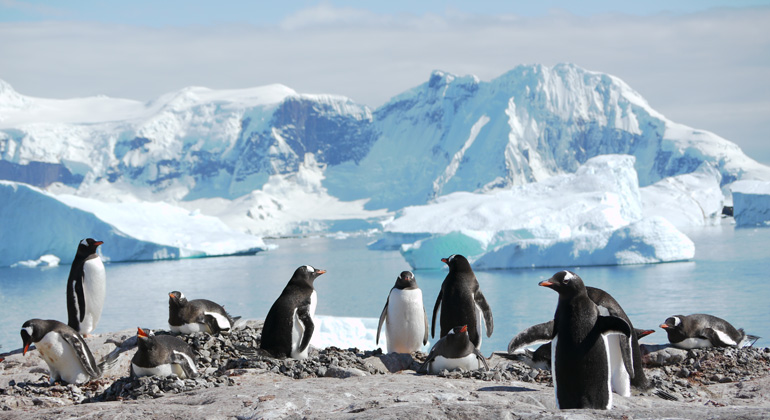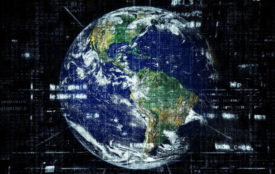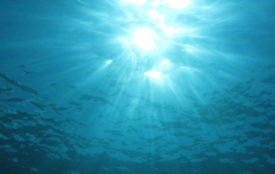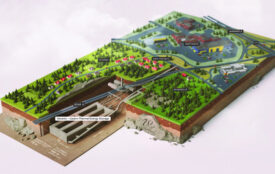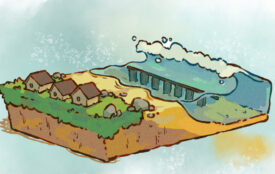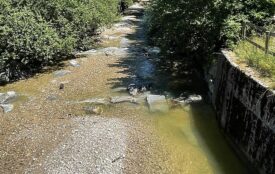Global warning: ocean warming
As Edward Young, the 17th Century English poet, once famously said, “procrastination is the thief of time”. Never has that been truer than now, when the nature and scale of the impacts from human activities on the ocean are considered, and the true costs of inaction to address them revealed.
A new IUCN report, entitled Explaining ocean warming: causes, scale, effects and consequences, sets out the most recent and comprehensive review to date on this topic and shows a complex story of change in the ocean. This change is underway, often already locked in for many decades to come, and has already begun to impact people’s lives. This is no longer a single story of ocean warming challenges to coral reefs, but a rapidly growing list of alarming changes across species at ecosystem scales, and across geographies spanning the entire world. It is pervasive change, driven by ocean warming and other stressors already operating in ways we are only beginning to understand, where essential gaps in marine data, systems and capabilities are leaving the world poorly prepared to cope in the future.
Ocean warming may well turn out to be the greatest hidden challenge of our generation. More than 93% of the enhanced heating since the 1970s resulting from human activities has been absorbed by the ocean, and data show a sustained and accelerating upward trend in ocean warming. The scale of ocean warming depicted in the report is truly staggering: if the same amount of heat that has gone into the top 2 km of the ocean between 1955 and 2010 had instead gone into the lower 10 km of the atmosphere, the Earth would have seen a warming of 36°C.
Compiled for IUCN by 80 scientists in 12 countries, the report explores the impacts of ocean warming on ecosystems and species, and on the every-day benefits derived from the ocean – its ‘goods and services’.
Major changes caused by ocean warming and other stressors described in the report include impacts on entire ecosystems from polar to tropical regions, predicted to increase further in scale, stretching from accessible coasts to the deep ocean seabed; entire groups of species such as plankton, jellyfish, fish, turtles and seabirds being driven by up to 10 degrees of latitude towards the Earth’s poles to keep within reasonable environmental conditions; loss of breeding grounds for groups such as turtles and seabirds, and impacts on the breeding success of birds and sea mammals; and seasonality shifts by plankton, leading to potential mismatch between plankton species with fish and other marine wildlife.
We now know that the changes in the ocean are happening between 1.5 and 5 times faster than those on land. Such range shifts are potentially irreversible, with great impacts on ecosystems. What this will result in, decades down the line, is less clear. It is an experiment where, rather than being a casual observer in the lab, we have unwittingly placed ourselves inside the test-tube.
The report also describes the inadequacy of current knowledge, capabilities and capacity to adequately study ocean warming, and to advise and cope with the associated challenges. The global community is increasingly committing itself to a high-carbon future which it is poorly equipped to understand, let alone cope with. The impacts are already outstripping what is fully understood and the capacity of the global community to act.
The world, perhaps distracted by the bustle of daily issues on land, has been ignoring the impact climate change has been having on the largest living space on the planet – the ocean. The ocean lies at the heart of the climate system, and it must now lie at the heart of climate discussions. Through the implementation of the Paris Agreement under the UNFCCC, Parties should now consider ocean impacts in the so-called “nationally determined contributions” (NDCs) outlining national best efforts towards a sustainable low carbon future. It is now critical to address atmospheric CO2 – the root cause of these and so many other problems – and achieve rapid and significant reductions of what we emit.
The report is being launched at the IUCN World Conservation Congress, a key moment to press home the urgency with which such reductions now need to be achieved. We should reflect that we are locking in a worrying warming trend in the ocean, the only ocean we have, on the only world we know, teeming with life. Now is the moment to be wise and act. Future generations will then no doubt thank us for the wisdom of our deeds. In the end, it is perhaps poetic to return to the words of Edward Young: “Be wise today; ’tis madness to defer”.
